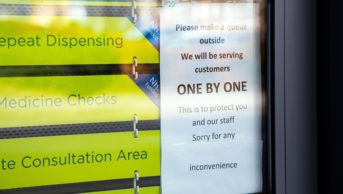
Pharmaceutical Services Negotiating Committee
Almost two thirds of local pharmaceutical committees (LPCs) are currently represented at some level in local sustainability and transformation partnerships (STPs), according to a survey carried out by the Pharmaceutical Services Negotiating Committee (PSNC) and Pharmacy Business magazine.
The survey of LPCs, which was carried out between 22 January and 22 February 2018, found that although more than half of LPCs said they felt their local STP had an understanding of what pharmacy has to offer, just two LPCs said they had a pharmacy representative on the STP board. Furthermore, 12% of LPCs said that they were not involved with the STP at all.
STPs are partnerships between local NHS organisations, local authorities and social care providers. They are tasked with support implementation of the NHS ‘Five year forward view’ and developing proposals to best meet the health and social care needs of their local population.
According to the 43 LPCs who responded to the survey, the most common barriers standing in the way of engaging with STPs was that LPCs had not been able to find the right people to talk to, or that the STP had simply not been interested in engaging with community pharmacy.
The PSNC said the findings do show that some progress has been made since December 2016, when an integration survey carried out by the PSNC, Pharmacy Voice and the Royal Pharmaceutical Society (RPS) found that the contribution of the community pharmacy sector had not been fully explored during the development of the 44 STPs.
“These survey results confirm once again that STPs have a lot of priorities to juggle, but that hard work from LPCs to engage with them has really been paying off in some areas,” said Alastair Buxton, director of NHS services at the PSNC.
“We’re pleased to see that so many LPCs have managed to get some engagement with STPs, and this makes sense as community pharmacy has a huge amount to contribute to many key local health priorities,” he added.
But Robbie Turner, director for England at the RPS, said that if STPs are going to deliver the transformational change required, many will need a step change in their attitudes towards medicines.

Source: MAG / The Pharmaceutical Journal
Robbie Turner, director for England at the Royal Pharmaceutical Society, said STPs need a “step change” in their attitudes towards medicines
“To improve outcomes for patients and reduce future costs it is important that STPs think more about how patients in their area actually use medicines as part of living with long-term conditions to achieve the best value,” he said.
“To help make this happen we will need more pharmacists involved in strategic and operational planning at all levels of STPs. The same people talking about the same problems as is happening in some areas is not likely to come up with the innovative solutions needed to ensure we can have an NHS in the future that our communities deserve.”
Turner added that the RPS has appointed four regional liaison pharmacists to help increase the focus of STPs on medicines and the profession’s role in supporting patients and the NHS.


